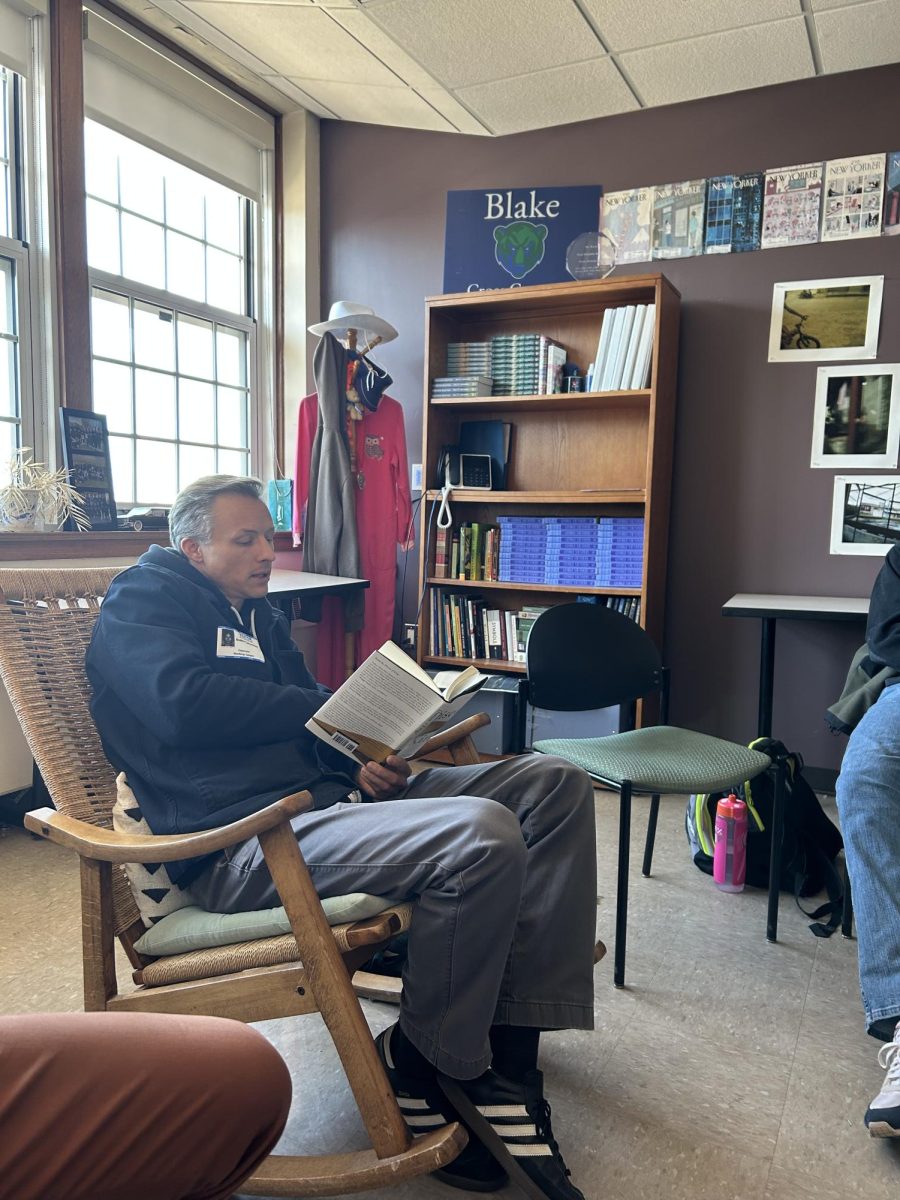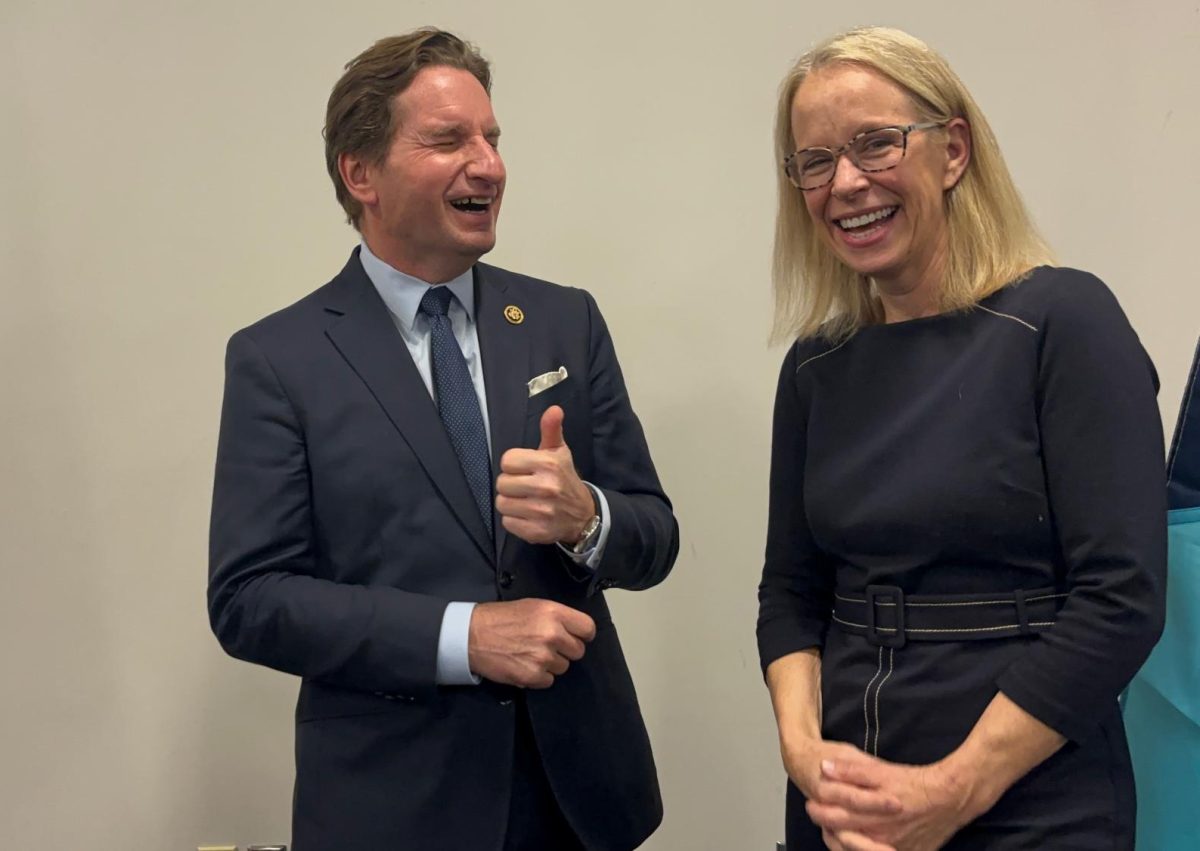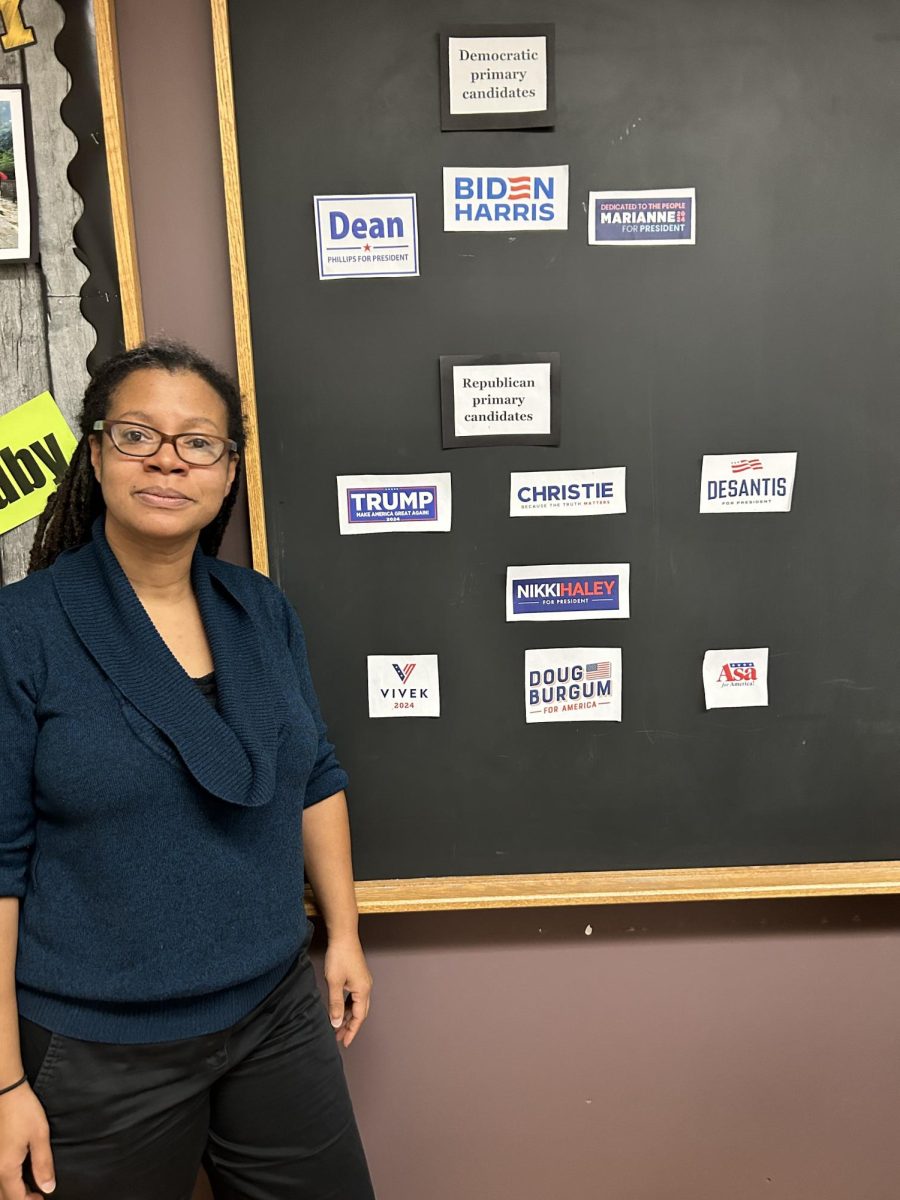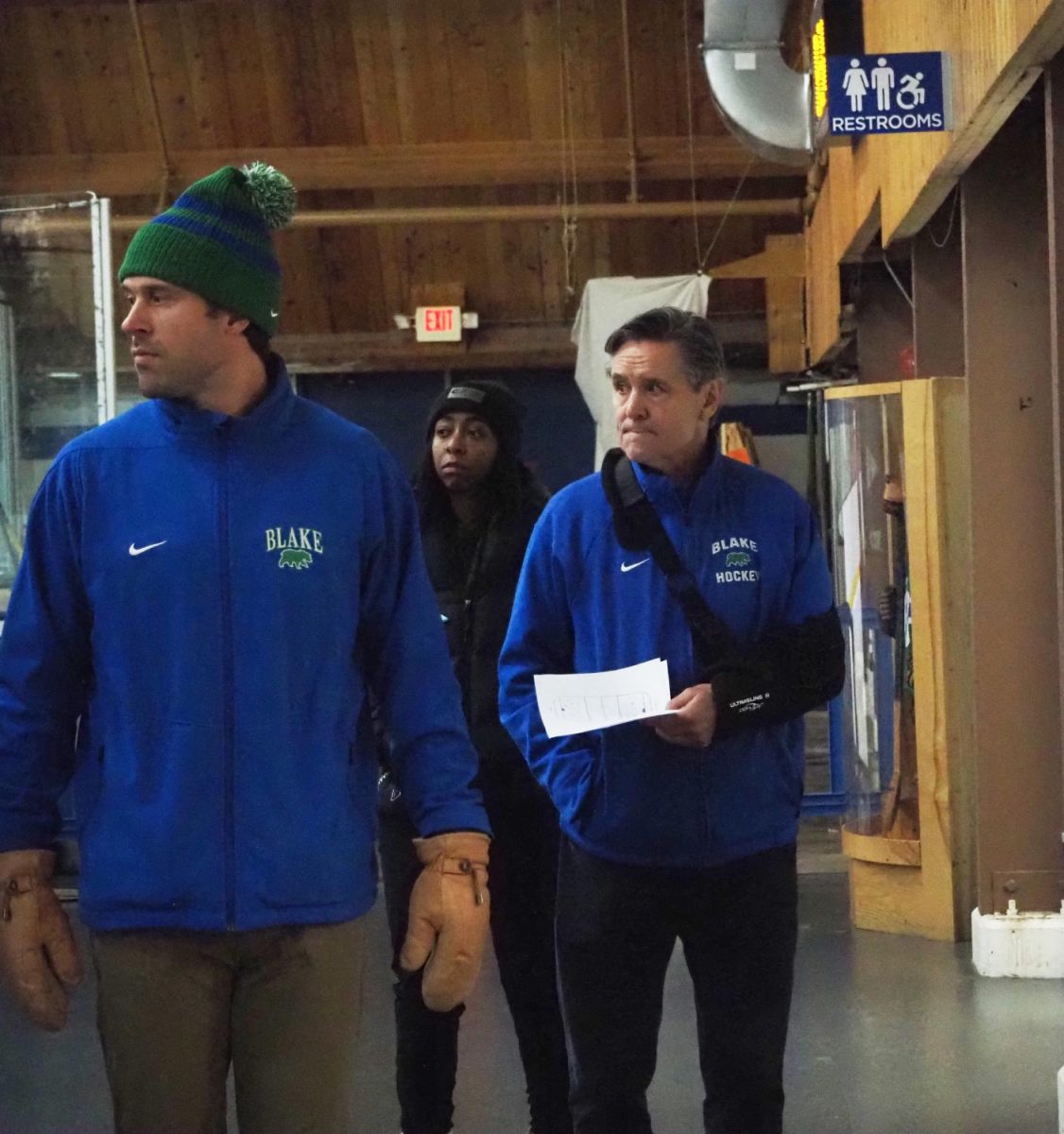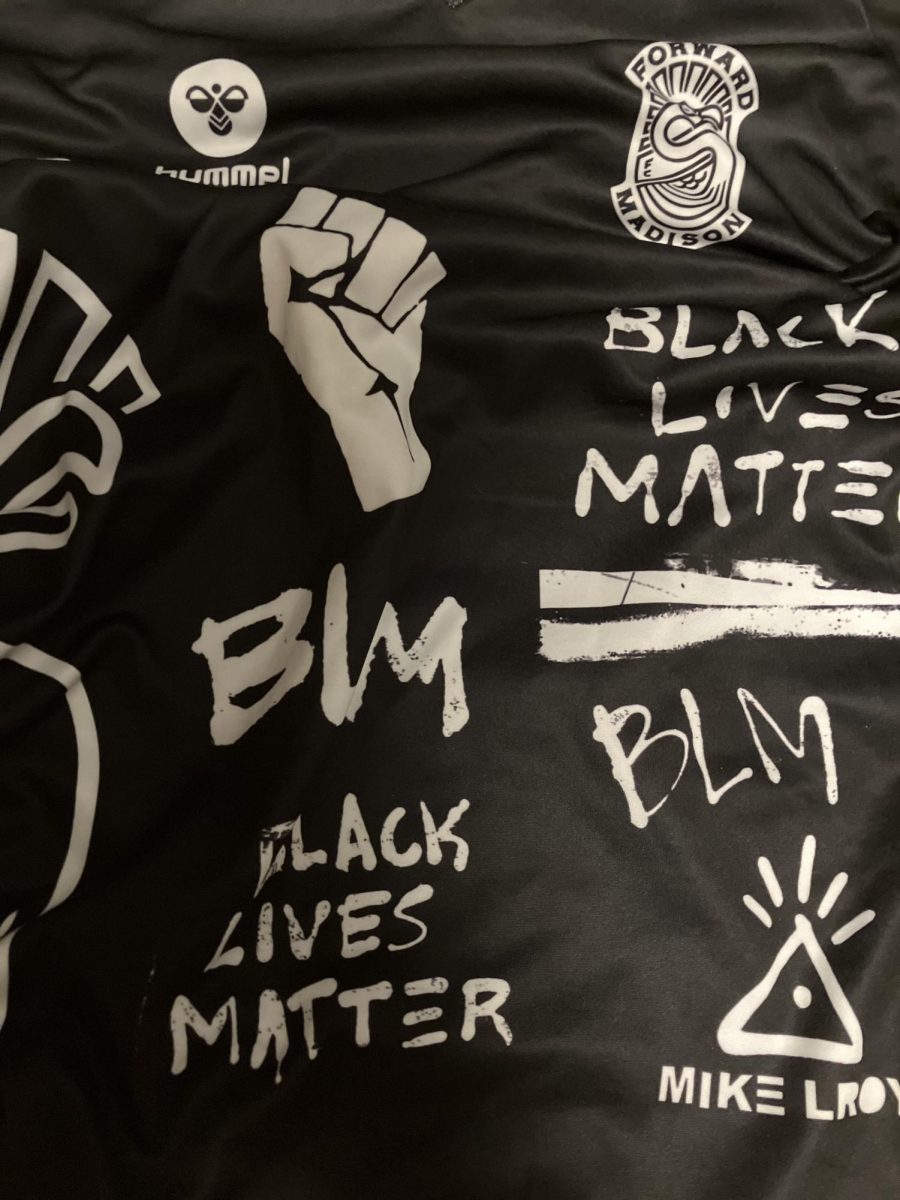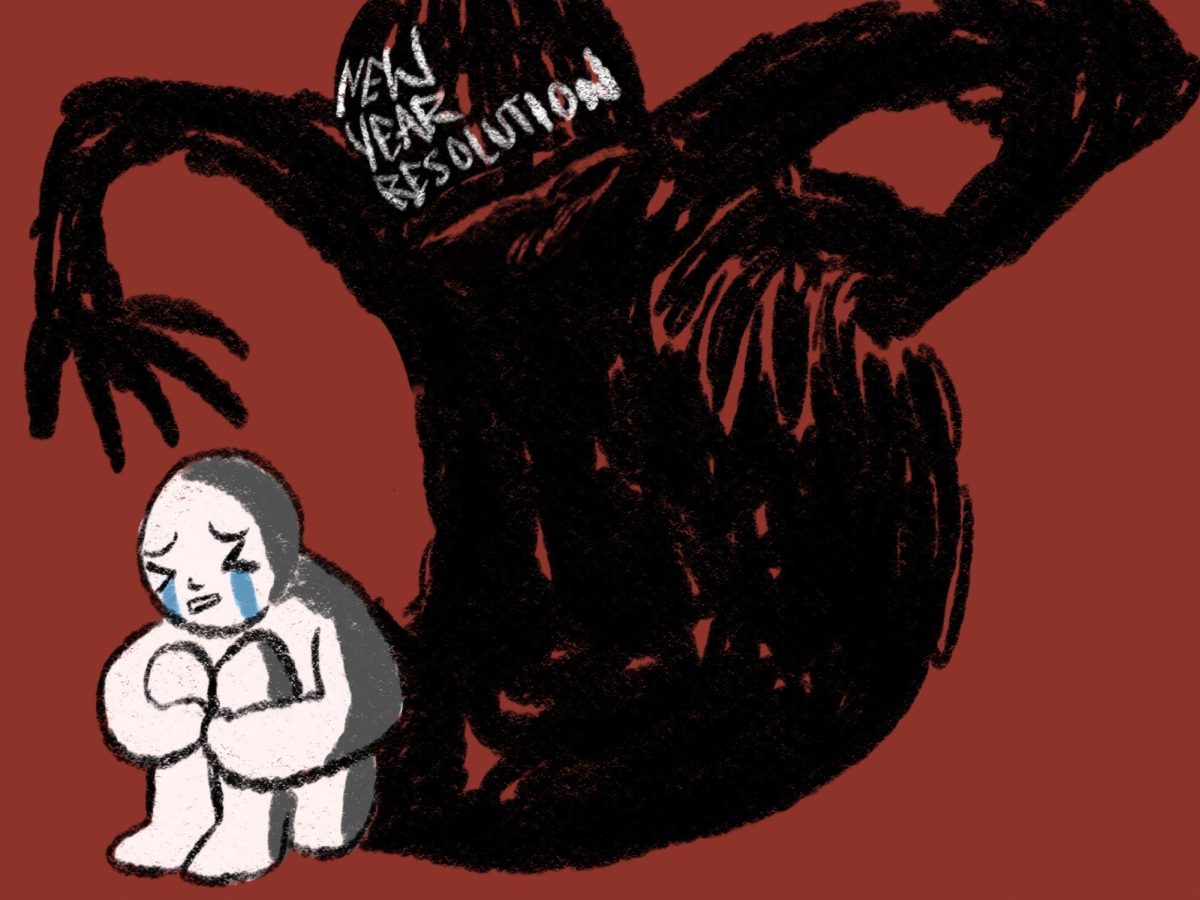On Thursday, May 19, Justice League met to discuss Donald Trump. Do experiences influence Trump supporters over facts? Are Donald Trump supporters anti-government? Does Trump really “tell it like it is”? All of these questions acted as bases for their discussion. Meeting in the Cherne Forum during both lunches for one of their open conversations in the school, teachers and students jumped off into these subject areas to discuss their points of view on Trump’s controversial candidacy and the support fueling it.
A prevailing idea that was passed around the Cherne was the role that political correctness takes in determining support. Many students expressed that they feel as if Donald Trump appeals to anti-PC voters. Conversely, Kaaz Naqvi and Emma Wexler ’16 brought up that liberals aren’t necessarily pro-PC either.
Scott Flemming chipped into the conversation with another angle, bringing up that Trump is truly a “lightning rod” in the news today and that that affects his support despite what Flemming described as his bigotry towards minorities. JJ Kahle brought up that his campaign has gotten attention of supporters because of an idea of the “tyranny of the minority.”
For those that have not heard of this term, it refers to instances in which the majority blames minority groups for being oppressive by forcing their problems into the spotlight, when the majority feels that since it does not apply to them, it should not be concerning. This concept is parallel to the blame put on “PC Police” for being over sensitive about the role of political correctness in the presidential race. Kahle related these two points to supporters’ opinion that small populations should not dictate what the larger population says or does, pointing to Trump as a beacon of it with his expressed disinterest for minority issues such as immigration.
Alternatively, students ended the conversation on a note by bringing the conversation to its affect on school. Riley Weinman ‘17 and Brendan Barrow ’17 shared how political correctness has had a special presence in classroom discussions.
Wrapping up the conversation, students and teachers agreed that the presence of unrest with political correctness and “tyranny of the minority” is prevalent in support for Trump, and that experiences might be conducting support for him rather than the actual facts. Whether it’s a unrest with PC or with small population issues dictating majority politics, the question still remains, but the input of students and faculty drives topics like this into the spotlight.



